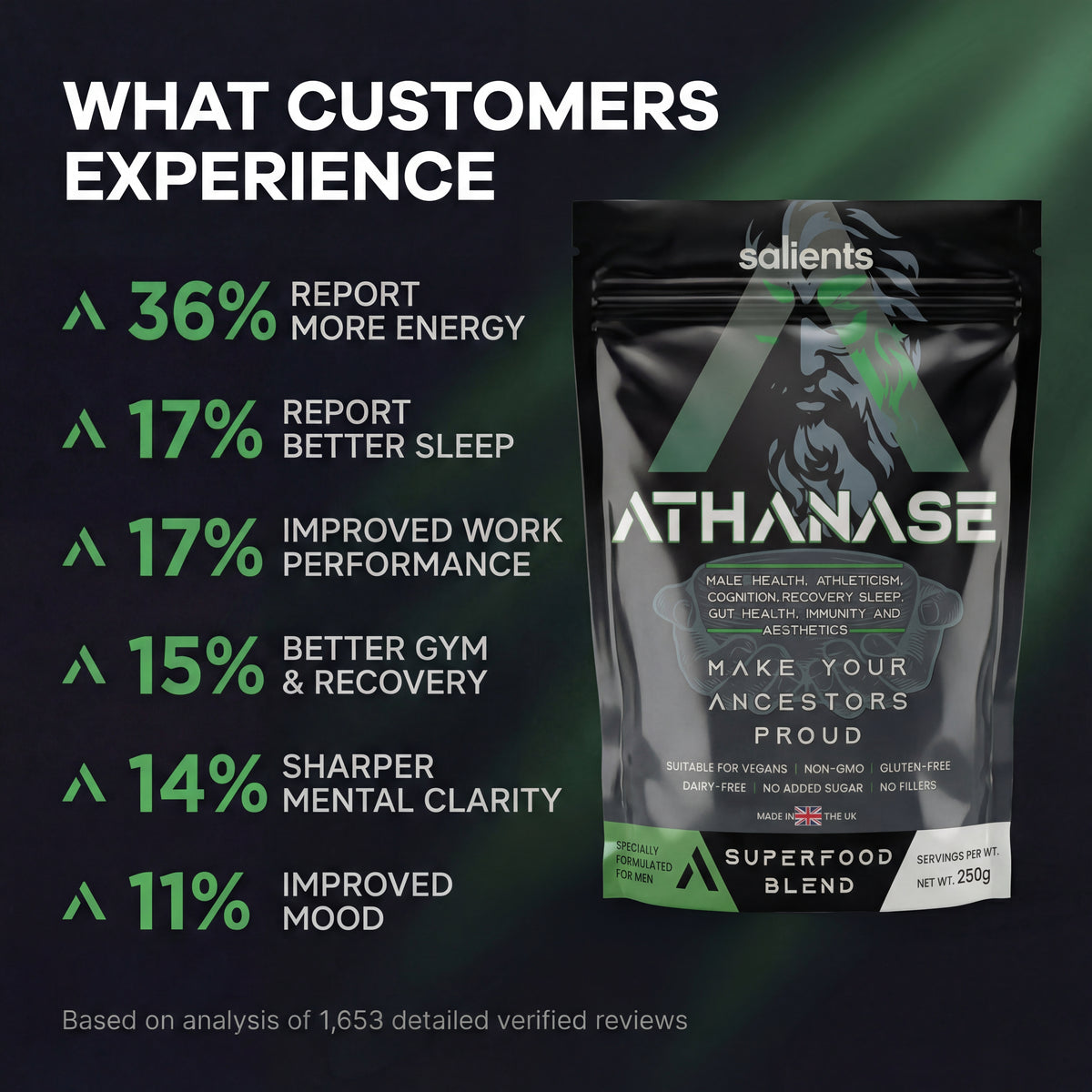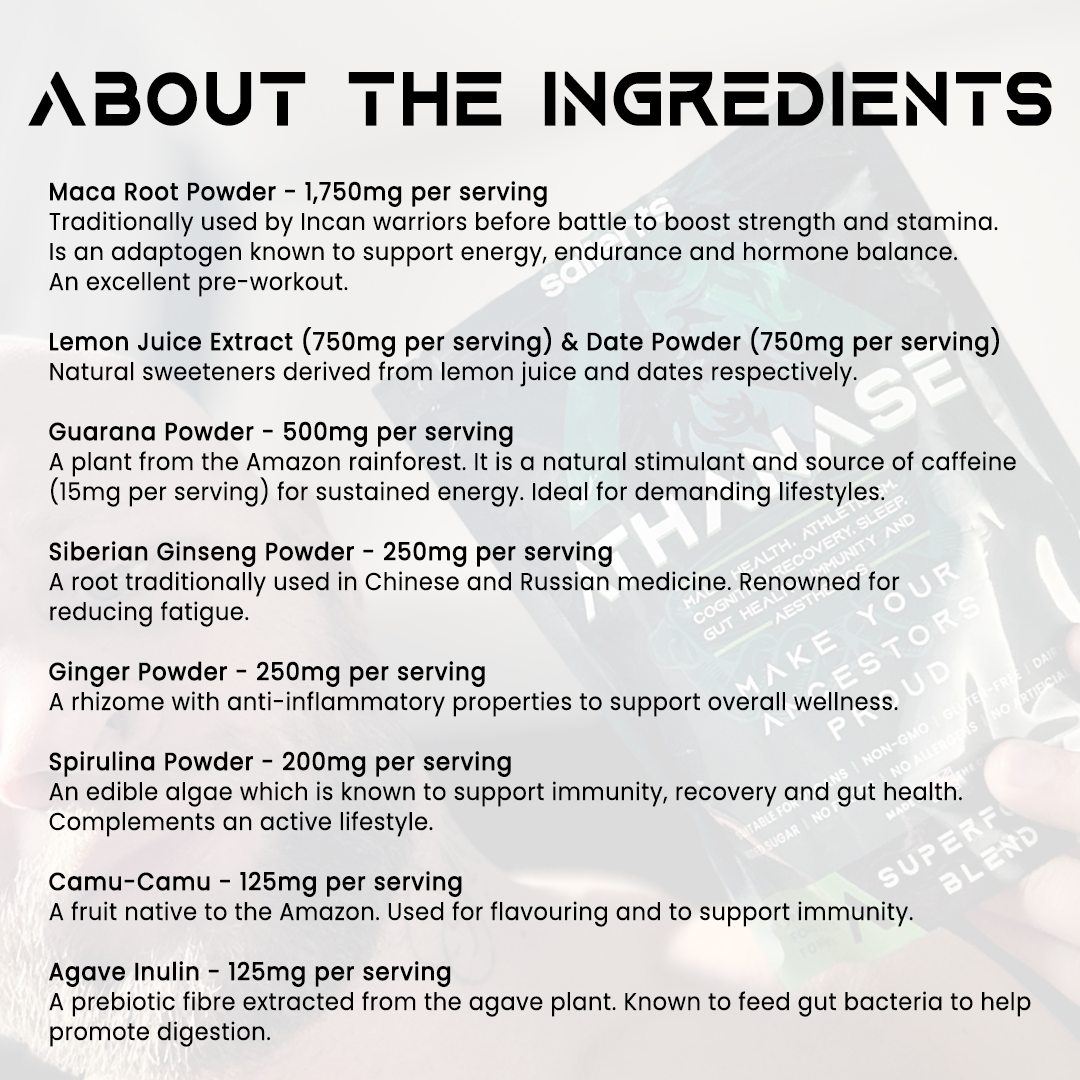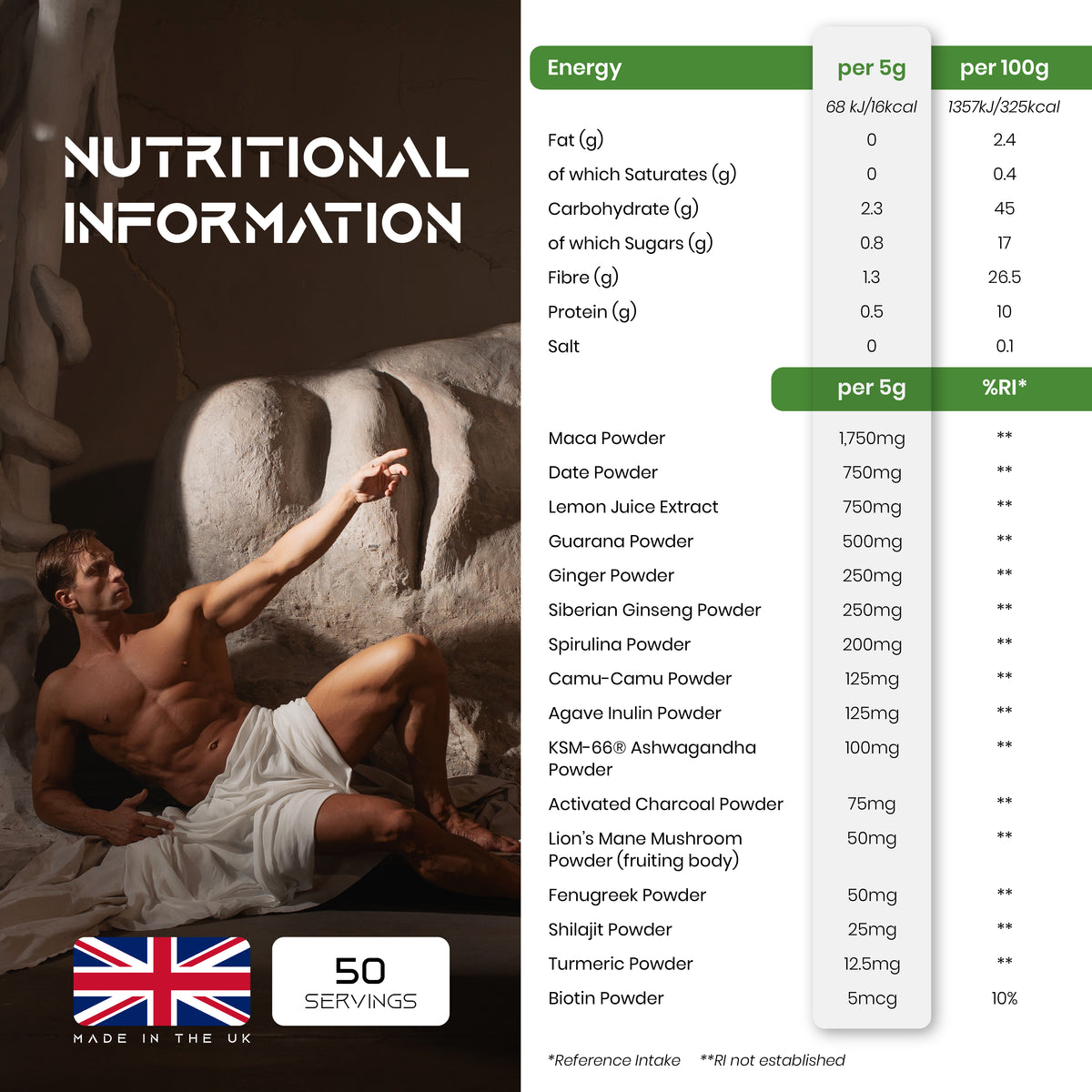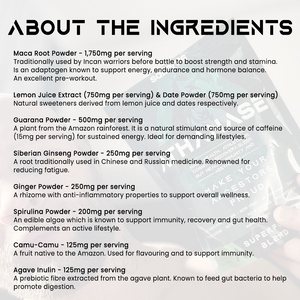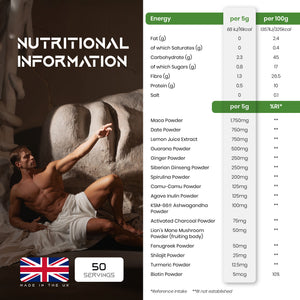Your Cart is Empty
MAKE YOUR ANCESTORS PROUD | FREE SHIPPING ON ALL UK AND US ORDERS
MAKE YOUR ANCESTORS PROUD | FREE SHIPPING ON ALL UK AND US ORDERS
How to Measure the Impact of Dietary & Lifestyle Changes
by The Salients September 28, 2024 4 min read

When you start consuming ATHANASE®, use supplements or make other dietary and lifestyle changes, how do you really know if they're working? Too often, we rely on subjective feelings or assumptions based on what we think should happen, but the only way to truly understand how these changes affect your body is by measuring them objectively.
When I created ATHANASE®, I wanted to see how it would influence my own hormone levels. Instead of relying on guesswork or how I felt day-to-day, I ran tests and tracked my data. The results were positive, and they're available for you to view here: View My Results →
But here's the truth: just because I saw benefits doesn't mean everyone will. Every body is different, and the only way to know if something is working for you is to measure and track the results.
In this blog post, I'll share methods you can use to track the impact of ATHANASE® and other dietary or lifestyle changes, so you can take more control of your own health journey and make more informed, data-driven decisions.
The 5 Key Metrics to Track
🩸 Hormone Blood Tests
Testosterone, oestrogen, cortisol, DHEA and other key markers
📊 Body Composition
Muscle mass, fat percentage, and bone density
🏋️ Performance Tracking
Strength gains, endurance improvements, workout logs
😴 Sleep Quality
Duration, deep sleep cycles, and recovery metrics
🧠 Mood & Cognitive Performance
Mental clarity, focus, energy levels, and emotional wellbeing
1
Hormone Blood Tests
Your hormone levels play a crucial role in your overall health and well-being, particularly when it comes to energy, mood, and athletic performance. If you're curious about how supplements or dietary changes are affecting your hormones, getting regular blood tests is valuable.
I personally use Medichecks to monitor my hormone levels before and after adding ATHANASE® to my routine. You can measure testosterone, oestrogen, cortisol, DHEA, and other key markers to see how your body is responding over time.
Pro tip: Track your hormone levels seasonally to account for seasonal, environmental and lifestyle changes.
2
Body Composition Analysis
If your goal is to improve physical performance, body composition should be one of the metrics you track. Understanding your muscle mass, fat percentage, and bone density provides a baseline from which you can measure progress.
- DEXA scans: Considered the gold standard for body composition measurement, a DEXA scan provides highly accurate data on body fat, muscle mass, and bone density.
- Smart scales or calipers: While less precise than DEXA scans, these are more accessible and can provide useful insights if used consistently.
Tracking these metrics over time can show how your body is responding to your workouts and food blends like ATHANASE®. If you're serious about improving athletic performance, it's crucial to have these measurements on hand.
3
Performance Tracking
If you're focusing on enhancing physical performance, whether it's building strength or improving endurance, you need to track your progress in a concrete way. Keeping a detailed log of your workouts is essential.
- Strength: Track how much you can lift over time—whether it's your one-rep max or the weight and reps in your daily sets.
- Endurance: Track how fast you can run specific distances or how long you can maintain peak effort during your workouts.
Many ATHANASE® customers report improvements in their training, but without tracking these specific metrics, it's impossible to objectively know how much progress you're making.
4
Sleep Quality
Sleep is often overlooked, but it plays a crucial role in recovery, mental clarity, and overall health. If one of your lifestyle changes is aimed at improving your sleep, you need to track your sleep patterns and quality.
Using a device like Whoop or another sleep tracker can help you monitor:
- Sleep duration — how long you sleep
- Sleep quality — deep sleep vs. light sleep cycles
- Recovery metrics — how well your body recovers overnight
With this data, you'll know whether your dietary or lifestyle changes are having the desired impact on your sleep—and, by extension, your overall well-being.
5
Mood and Cognitive Performance
Mental clarity, focus, and mood are harder to measure, but just as important when evaluating the impact of supplements or lifestyle changes.
- Journals: Keep a daily or weekly journal where you note your energy levels, mood, and cognitive performance. This will help you identify patterns and changes over time.
- Cognitive Tests: There are various apps and tools that can help you measure improvements in focus, memory, and mental clarity. These might seem small, but over time, they can show how well your body and mind are adapting to changes.
A Word of Caution
⚠️ Limitations of Studies and the Placebo Effect
While studies support the ingredients in ATHANASE®, it's important to recognise that no study is conclusive. Every study comes with limitations—whether it's small sample sizes, varying conditions, or a countless number of factors that can affect the outcomes. That's why your own individual data is so important.
Also, don't underestimate the placebo effect. If incorporating something into your routine improves your performance—even if it's partly psychological—that effect is still valuable. If you feel better, perform better, and recover faster, the positive impact is real, no matter the source. But it doesn't necessarily mean your dietary or lifestyle change is working.
Final Thoughts: Measure, Reflect, Adjust
Just because something works for someone else doesn't mean it will work for you.
The key is to measure, reflect, and adjust your approach based on your own results. Health is personal, and what works for one person might not work for another.
Ready to Start Tracking?
See how ATHANASE® affected my hormone levels—with real data.
View My ResultsMake Your Ancestors Proud. ⚔️
The World's First Superfood Blend For Men
ATHANASE
2243 reviews
£28.00
MAKE YOUR ANCESTORS PROUD® with ATHANASE®. A blend of herbs specially formulated for men, to help conquer 7 areas:
| |
MALE HEALTH |
| |
ATHLETICISM |
| |
MOOD & COGNITION |
| |
RECOVERY & SLEEP |
| |
GUT HEALTH |
| |
IMMUNITY |
| |
AESTHETICS |
As seen in Men's Health Magazine and Certified by Informed Sport.
I
Ian Bryer Great Product
Been using this product about 2 weeks and already feeling the benefits
R
Richard Rough taste but mixed with electrolytes or juice its fine. Amazing product for increasing strength and recovery when hitting the gym daily🤘🏼
J
Jordan Brennan Athanase
Fantastic product. Feel the effects pretty quickly. Unexpected improvement in stamina.
I
I Y Athanese
Really good product, stopped using for a week to see if there was any difference and definetly noticed the difference it had been making. I felt less tired throughout the end of the day when taking it.
J
James Green Best on the market
Tastes horrible but with electrolytes and creatine then bobs your uncle
Select a purchase option to pre order this product
Countdown header
Countdown message
Countdown message
DAYS
:
HRS
:
MINS
:
SECS



